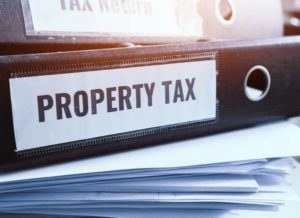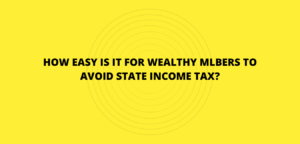Heroes Act, COVID-19 Tax & PPP Updates

Heroes Act, COVID-19 Tax & PPP Updates, originally posted By Ron Cohen, CPA on 5/16/20
Dear Clients and Friends:
Further to my email yesterday, after a procedural vote in the morning, at 9:26pm EST, the House finalized passage of the Heroes Act.
Deloitte, with a staff of writers, covers the House passage of this monumental bill, covers the bill in their article; “Heroes Act clears House, next steps uncertain”.
In short, the bill just barely passed the house, so there will be much negotiation before any part of it (even parts all agree upon for important technical corrections to the Families First and CARES Acts) will likely be approved by the Senate and sent to the President for signature, and become law. For prospective, 100s of tax bills and aid bills are proposed each (in a normal-non COVID) year. Very, very few are enacted.
Therefore, most of the article, at least as of today, is uncertain if any part of it will become law.
But, at least for me, no matter what happens, the House passage of a $3 Trillion bill is worth a moment of reflection, followed by various emotions, depending on your political and monetary policy views.
It covers several issues, some of which may interest our readers:
- Business provisions: Revisions to ‘Phase 2’ and ‘Phase 3’ policies
- Limitation on NOL carrybacks:
- Reversing ‘excess business loss’ rule changes:
- Enhancing the employee retention tax credit:
- Changes to Paycheck Protection Program:
- Allow payroll tax deferral for recipients of forgiven PPP loans:
- Clarify deductibility of expenses funded by forgiven PPP loan funds:
- Clarify deductibility of expenses related to other grant and loan programs:
- Include certain interest, PPE costs as eligible expenses for PPP loan forgiveness:
- Enhancement of credits for paid sick and family leave:
- New business provisions
- Credit for fixed expenses of employers subject to closure or gross receipts reduction:
- Credit for certain pandemic-related employee benefits paid by employers:
- Business interruption credit for self-employed individuals:
- Pension plan changes
- Relief for multiemployer pension plans:
- Relief for single-employer pension plans:
- Special funding rules for community newspapers:
- Qualified retirement plans and other retirement relief
- Required minimum distributions:
- Early distributions and plan loans:
- Benefits for volunteer emergency responders:
- Qualified domestic relations orders:
- Interest rate assumptions for life insurance contracts: 31, 2020.
- Employee benefits
- Recovery rebate payments for individuals
- Changes to CARES Act economic impact payments:
- Temporary repeal of limitation on state and local tax deduction
- Changes to worker and family tax credits
- Earned income tax credit enhancements:
- Child tax credit:
- Dependent care assistance:
- Targeted tax deductions and exclusions
- Next steps
- No love from Republicans:
- Democratic response:
- Senate shift?
Heroes Act, COVID-19 Tax & PPP Updates
Originally posted By Ron Cohen, CPA on 5/15/20
Dear Clients and Friends:
It is not every day (decade or lifetime) I get to write about a $3 Trillion tax bill, so I thought I’d send this quick note.
Today, the House of Representatives voted on: “H. Res. 965; providing for consideration of the bill (H.R. 6800)”. Text of the 1,800-page bill can be found here.
In the house – with Republicans united in opposition – it barely cleared a procedural vote to pave the way for debate. The vote was 207 (yes) to 199 (no), with 14 Democrats joining Republicans to vote no. Both Senate Republicans and President Trump have expressed strong opposition to the bill.
Unlike the last two COVID-19 bills that passed quickly with near unanimous approval by all members of Congress, this bill barely passed a procedural vote.
“Democrats who opposed the bill, many of them moderates, said they would have preferred to negotiate something with Republicans that could pass with bipartisan support.” Other Democrats voted no hoping to add additional aid to the bill.
Summary of the House Bill for another $3 Trillion of COVID-19 Aid can be found here…
Therefore, debate and a final vote in the house will occur at some future date.
COVID-19 Tax & PPP Updates
Originally posted By Ron Cohen, CPA on 5/14/20
Dear Clients and Friends:
This area gets highly technical, concerning the legal certification on Payroll Protection Program (“PPP”) loans.
Overview:
In the news, many borrowers have been considering the need to repay PPP loans to satisfy the legal certifications they signed. I will add, that since most companies I know of are in such dire need of the PPP funds, their Certification should be no problem. I am not aware of any clients obtaining a PPP loan of $2 million or more. So, as you may read, this information, below, provides further clarity that this lurking issue for some large companies, may not be a problem for yours.
If you have any questions, please discuss this with your attorney and/or banker. As a C.P.A., I can’t give legal advice, but I’m always happy to chat.
Much of the following information can be found at this link: https://www.wardandsmith.com/articles/do-i-need-to-return-my-ppp-loan-sba-extends-safe-harbor-deadline-to-may-14
“Over the last two weeks, significant comments from the Treasury Department, the SBA and the media have centered on this “necessity certification.” Statements by Treasury Secretary Mnuchin and the issuance of additional SBA guidance is causing a great deal of uncertainty with many borrowers.
Published on April 23, 2020, FAQ #31, asks: “Do businesses owned by large companies with adequate sources of liquidity to support the business’s ongoing operations qualify for a PPP loan?” The SBA responded, in part, “… it is unlikely that a public company with substantial market value and access to capital markets will be able to make the required certification in good faith, and such a company should be prepared to demonstrate to SBA, upon request, the basis for its certification.” The necessity certification guidance applies retroactively to all PPP loans. However, FAQ #31 also affords loan recipients a safe harbor for return of funds, “Any borrower that applied for a PPP loan prior to the issuance of this guidance and repays the loan in full by May 7, 2020 (this was extended) will be deemed by SBA to have made the required certification in good faith.”
Please see: https://www.jdsupra.com/legalnews/sba-creates-new-ppp-safe-harbor-rule-68994/
“Yesterday, the SBA published Frequently Asked Question (“FAQ”) 46, which provides some answers for PPP borrowers who are concerned about the good faith certification. In effect, the SBA has created a new safe harbor rule for borrowers with smaller loans to satisfy the requirement that they make the good faith certification that their PPP loan was necessary to support their ongoing operations: “Any borrower that, together with its affiliates, received PPP loans with an original principal amount of less than $2 million will be deemed to have made the required certification concerning the necessity of the loan request in good faith.
This means that a borrower with a PPP loan that, when combined with PPP loans received by the borrower’s affiliates, totals less than $2 million does not need to return the loan by May 18 in order to satisfy the safe harbor rule. Rather, the SBA will deem that the certification concerning the necessity of the PPP loan was made in good faith due to the amount of the PPP loan. The SBA is effectively saying, “if the aggregate amount of you and your affiliates’ PPP loans was less than $2 million, then you must have needed it.”
Background:
According to previous SBA guidance, a borrower who applied for a PPP loan before April 24 and returns the PPP loan in full by the deadline will be deemed by the SBA to have made the certification that “current economic uncertainty makes this loan request necessary to support the ongoing operations of the Applicant” in good faith. As a reminder, all PPP loan applicants were required to make that good faith certification when applying for their PPP loan. While the SBA has continued to publish guidance since first announcing the safe harbor deadline, the guidance has arguably created more questions than answers for those PPP borrowers who are concerned about the good faith certification. Please refer to our previous article for more background, here: https://www.wardandsmith.com/articles/do-i-need-to-return-my-ppp-loan-sba-extends-safe-harbor-deadline-to-may-14.
FAQ 46 goes on to say that “borrowers with loans greater than $2 million that do not satisfy this safe harbor may still have an adequate basis for making the required good-faith certification, based on their individual circumstances in light of the language of the certification and SBA guidance.” The SBA reminded borrowers that, as previously announced, they intend to review all PPP loans in excess of $2 million and other PPP loans as appropriate. FAQ 46 states that, during the review, if the SBA determines that the borrower lacked an adequate basis for making the certification in good faith, then the SBA will seek repayment of the outstanding PPP loan balance and the borrower will not be eligible for PPP loan forgiveness. However, if the borrower repays the loan after the SBA’s review and determination, FAQ 46 indicates that the SBA will not pursue administrative enforcement or referrals to other agencies.
[From Ron: Note: “Administrative Enforcement” means, in an IRS and SBA context, dealing with people who wear badges and can impose fines, penalties, liens and levies…”referrals to other agencies” means sending the case to the U.S. Department of Justice and seeking criminal indictments. You never want to deal with those types of folks. That is why this guidance is important.]
What does all of this mean? If you received a PPP loan that, when combined with your affiliates’ loans, is less than $2 million, you satisfy the requirements for the new safe harbor rule, and the SBA will deem that your certification concerning the necessity of the PPP loan was made in good faith. If you received a PPP loan that is more than $2 million and you are concerned about your certification, you may return the PPP loan in full by May 18 to satisfy the original safe harbor rule. However, if you borrowed a PPP loan that is more than $2 million and you do not return the PPP loan by May 18, the chances are that your loan will be reviewed by the SBA. During a review, if the SBA determines that you lacked an adequate basis for making the good faith certification, you will have to repay the outstanding balance of the PPP loan and will not be eligible for PPP loan forgiveness. Although the SBA has not provided a clear standard for determining whether a PPP loan was necessary, a borrower’s current business activity and their ability to access other funding sources are relevant factors. However, the good news is that the SBA will not pursue administrative enforcement against borrowers who repay the PPP loan after receiving notification from the SBA.
What should you do? If you decide to keep your PPP loan, our advice remains the same: maintain thorough documentation of your circumstances that gave rise to your belief that a PPP loan was necessary to support the ongoing operations of your business, and of your PPP loan application, approval, utilization, and forgiveness. If you decide to return your PPP loan, be sure to return it by May 18. And, as always, be on the lookout for additional SBA guidance.”
Please see: https://www.wardandsmith.com/articles/do-i-need-to-return-my-ppp-loan-sba-extends-safe-harbor-deadline-to-may-14.
For more information about tax implications of the Heroes Act, COVID-19, PPP loans or tax services for family offices or the ultra-affluent, please visit GROCO.com, contact your GROCO tax advisor or email Hello@GROCO.com.
We hope you found this article about Heroes Act, COVID-19 Tax & PPP Updates helpful. If you have questions or need expert tax or family office advice that’s refreshingly objective (we never sell investments), please contact us or visit our Family office page or our website at www.GROCO.com. Unfortunately, we no longer give advice to other tax professionals gratis.
To receive our free newsletter, contact us here.
Subscribe to our YouTube Channel for more updates.
Considerately yours,
GROCO, GROCO Tax, GROCO Technology, GROCO Advisory Services, GROCO Consulting Services, GROCO Relationship Services, GROCO Consulting/Advisory Services, GROCO Family Office Wealth, and GROCO Family Office Services.
Mutual Funds and Tax Benefits
Mutual Funds and Tax Benefits What are the tax benefits available to those who invest in mutual funds? What are the tax liabilities, if any? Since, April 1, 2003, all dividends, declared by debt-oriented mutual funds (i.e. mutual funds with less than 50% of assets in equities), are tax-free in the hands of the investor.…
10 Ways to Cut Your Property Taxes
10 Ways to Cut Your Property Taxes By Paul W. Wilson Property taxes are decided collectively by school boards, town boards, legislators, and councils. The tax rate is set by collating the amount of funds an area needs. This is then divided by the “total taxable” assessed value of the area. The tax an individual…
How Easy is it for Wealthy MLBers to Avoid State Income Tax?
How Easy is it for Wealthy MLBers to Avoid State Income Tax? Spring is here and that means a lot of things to a lot of people. For many, spring means baseball is back, from Little League to the Majors, ball players are back on the diamond hitting homers, striking people out and stealing bases.…




